Sport
The Olympics fulfilled my lifelong dream, I want to win the next one, believes Kazakh climber from BUT
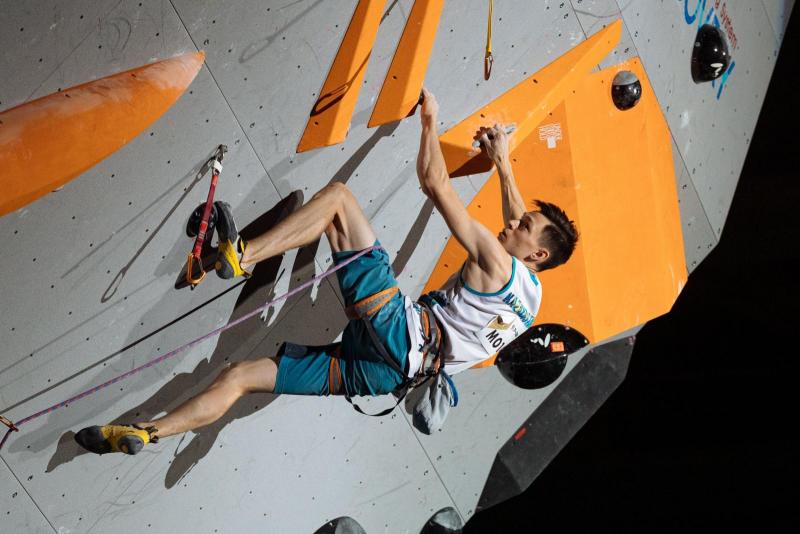
Rishat Khaibullin decided to leave his native Kazakhstan at the age of nineteen and study in the Czech Republic, more precisely at the Faculty of Electrical Engineering and Communication Technologies of the BUT (Brno University of Technology). He left his family thousands of kilometres far away, as well as the beginnings and first successes of his climbing career. All the more he was surprised when he discovered a background he had never dreamed of in Brno. His training partner is Adam Ondra, but last year they were rivals on the Olympic climbing wall in Tokyo. At BUT, he was named Sportsman of the Year in 2021. Rishat decided recently to leave the publicly known climbing on difficulty and bouldering and focus on his strongest side – speed climbing. He is one of the best climbers on Earth and he is also thinking of breaking the world record.
When did you first become interested in climbing?
My dad is a well-known mountaineer, so we've been going outdoors and to the rocks since we were young. When I was six years old, my sisters and I went to a climbing club and that's where I first encountered climbing directly. I was doing well, then there were races where I failed and I didn't want to train for a while. Mum had to persuade me to start again. But now I feel it's my kind of sport. I tried tennis or martial arts, and I didn't like that. I think climbing is the best sport in the world. It's about coordination and it's very dynamic.
Does a particular physique predispose a person to be a really good climber?
I don't think you need a special physique to climb. For example, I am not very tall, so I don't have such an advantage in jumps, but I can win with something else. But I admit that I have good parameters for climbing.
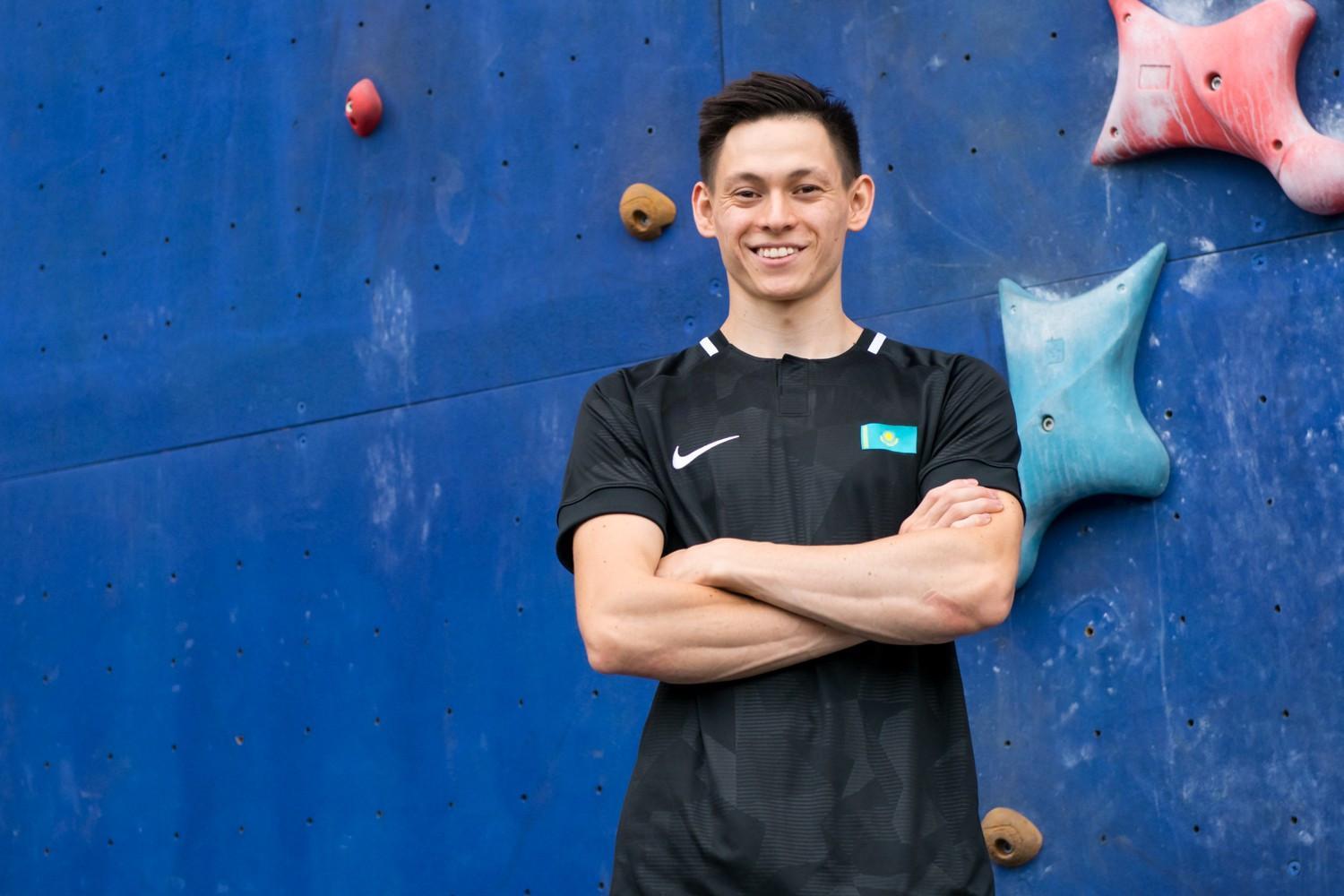
How was your training back in Kazakhstan?
In Kazakhstan, climbing is at a very low level. Only professional athletes are involved in it, not amateurs at all, so there are really few of us. In the Czech Republic, anyone can decide and go climbing. I was very surprised when I moved here and found out how many people enjoy climbing. I was lucky to live in Kazakhstan in a city with the best wall in the country, but it was still not enough to get good results in international competitions. Therefore, I went to Moscow, for example. In Kazakhstan, there are climbing walls from the Soviet era. Nowadays, climbing is changing very fast, so even holds and structures are changing, which we didn't have in Kazakhstan.
Still, you have some nice achievements from that time.
In the beginning it was a ring for me, then I started winning and gradually it went to the international format. In Kazakhstan I was, and probably still am, the best, but when I came to the Czech Republic my level of climbing increased a lot. There are good walls and there is a lot of competition, which helped me personally a lot.
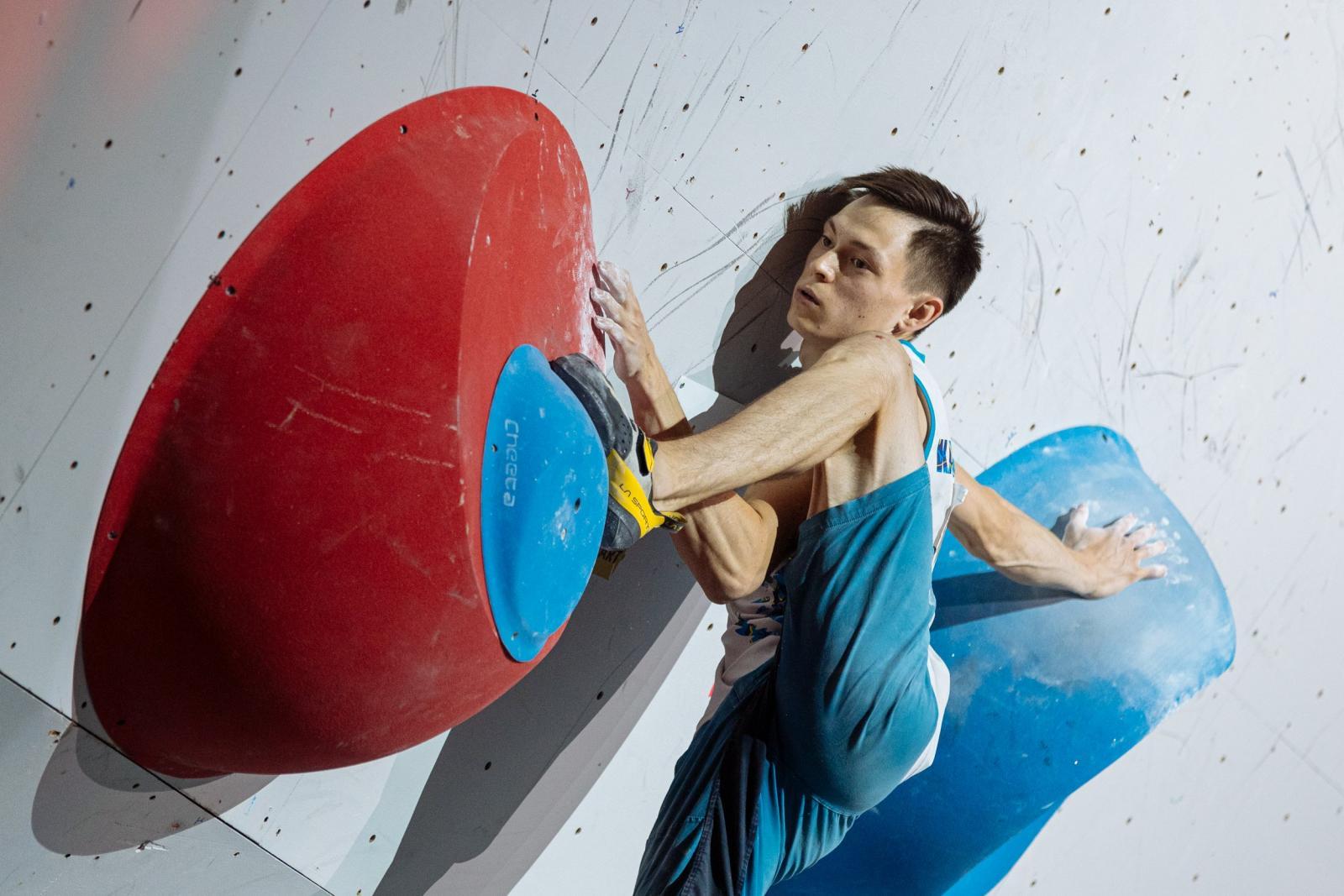
Why did you decide to go to the Czech Republic about six years ago?
I had a lot of friends who had graduated from university in the Czech Republic, and my mother supported me. I like Brno, it's great, it's such a small town where it's relaxing. It's a great city for study and for my training. In my opinion, Brno has the best possible conditions in the Czech Republic.
Did you choose where to move to because of your training?
When I went to the Czech Republic, all I knew about the local climbing community was that you have the best climber in the world.
FROM BRNO TO THE OLYMPICS
Do you train alone or under supervision?
My main manager is my dad and I am my own coach. But my dad's giving me long-distance advice. We talk every week about what to do to get the best results.
Climbers are known to give each other a lot of advice. Is that your case too?
For example, Adam Ondra and I trained together for a long time, then our training sessions broke up, but we are still friends and see each other. Adam is a great guy. I was surprised how incredibly motivated he is to keep training. I wasn't able to do that at first, but after a while, luckily I got in shape to handle the training.
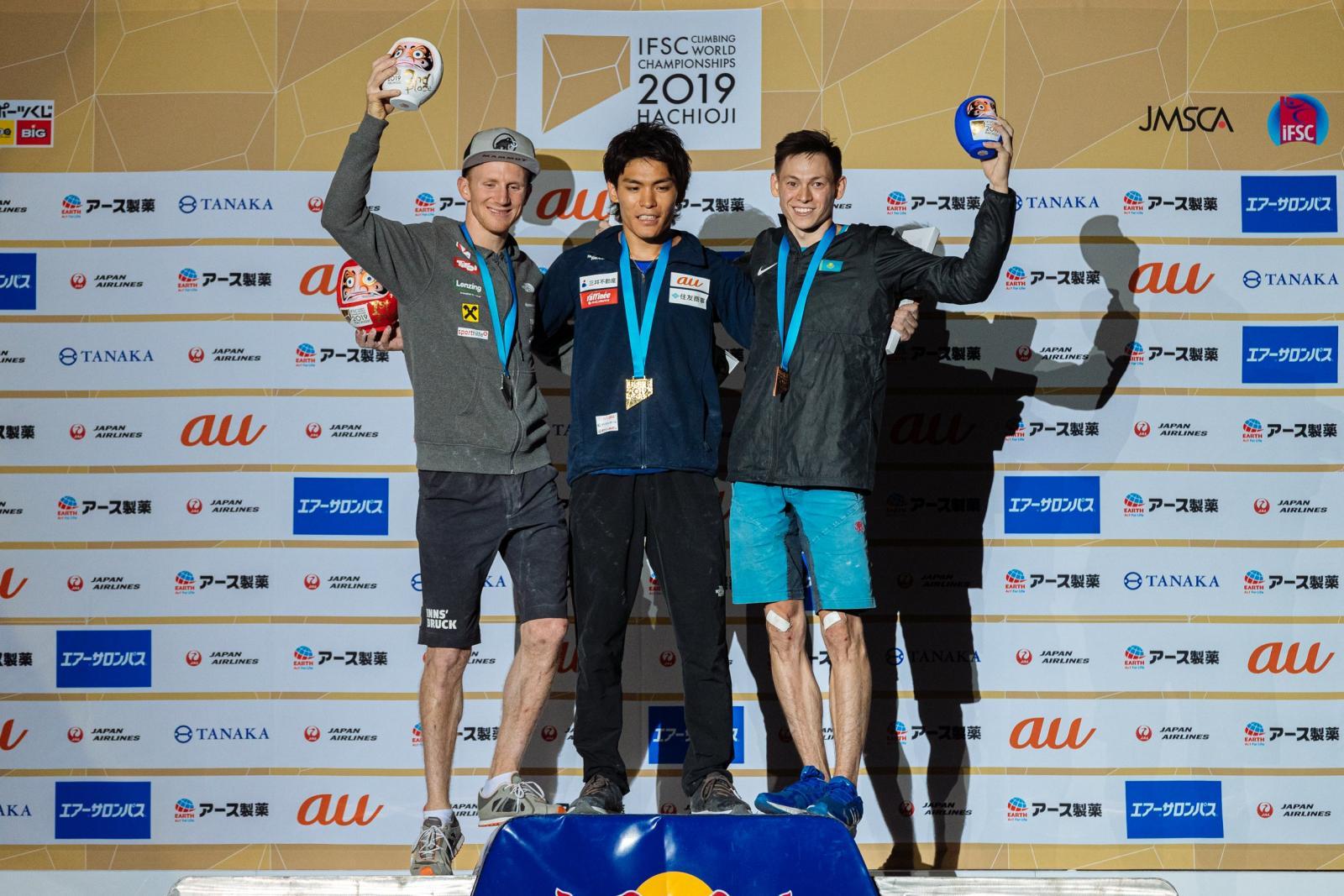
Obviously it was worth it because you made it to the Tokyo Olympics.
Originally, climbing wasn't even on the Olympics program. I trained and focused on the World Championships. In 2016, climbing suddenly made it to the Olympics. But it was registered there as a triple combination (bouldering, climbing on difficulty and climbing on speed, ed.). For me it was an advantage because I was both persistent and fast. I competed in all three disciplines from a young age, so I was a good all-round climber. At that point, the Olympics became my goal.
What was the feeling?
I thought I was fulfilling a lifelong dream. The Olympics itself is a great experience, I really enjoyed it. We all lived in a village where the atmosphere is great, you meet the best athletes from all over the world, I enjoyed it very much.
Are you satisfied with the result?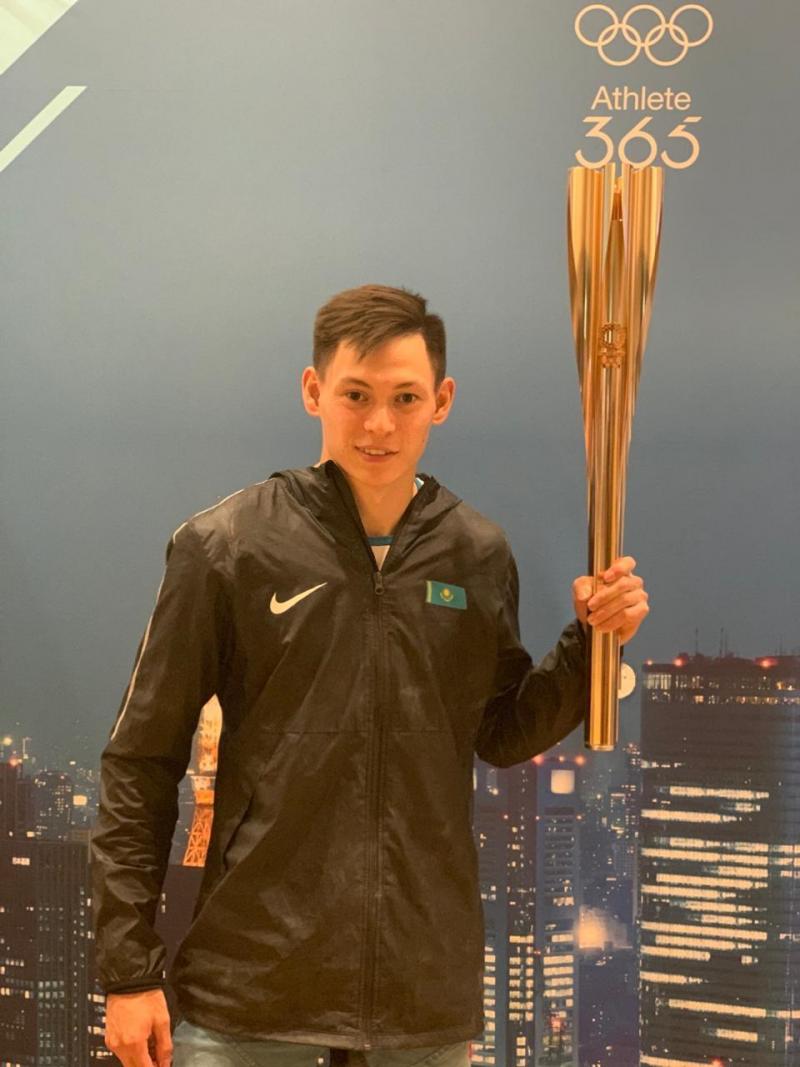
I didn't completely sell out. I had chances not only for the final, but also for the box. But I lost in my head in the end, so I finished 11th. It's not a bad result, it's just sport. But now I'm thinking about the next Olympics, which is in three years. And I have to train for that one.
At the next Olympics in Paris, the disciplines will be divided and there will be bouldering with climbing on difficulty and speed climbing separately. What does it mean for you?
I've decided that I'm only going to become a speed climber, so I'm going to pursue this nomination. The standardized journey for speed climbing has existed for more than ten years and is still the same, measuring fifteen meters long with twenty holds. Training means running up and down the road repeatedly. But sometimes I just crawl up on the wall. I used to work out in the gym, but I wanted to change my training, so now I focus more on coordination, athleticism and dynamics.
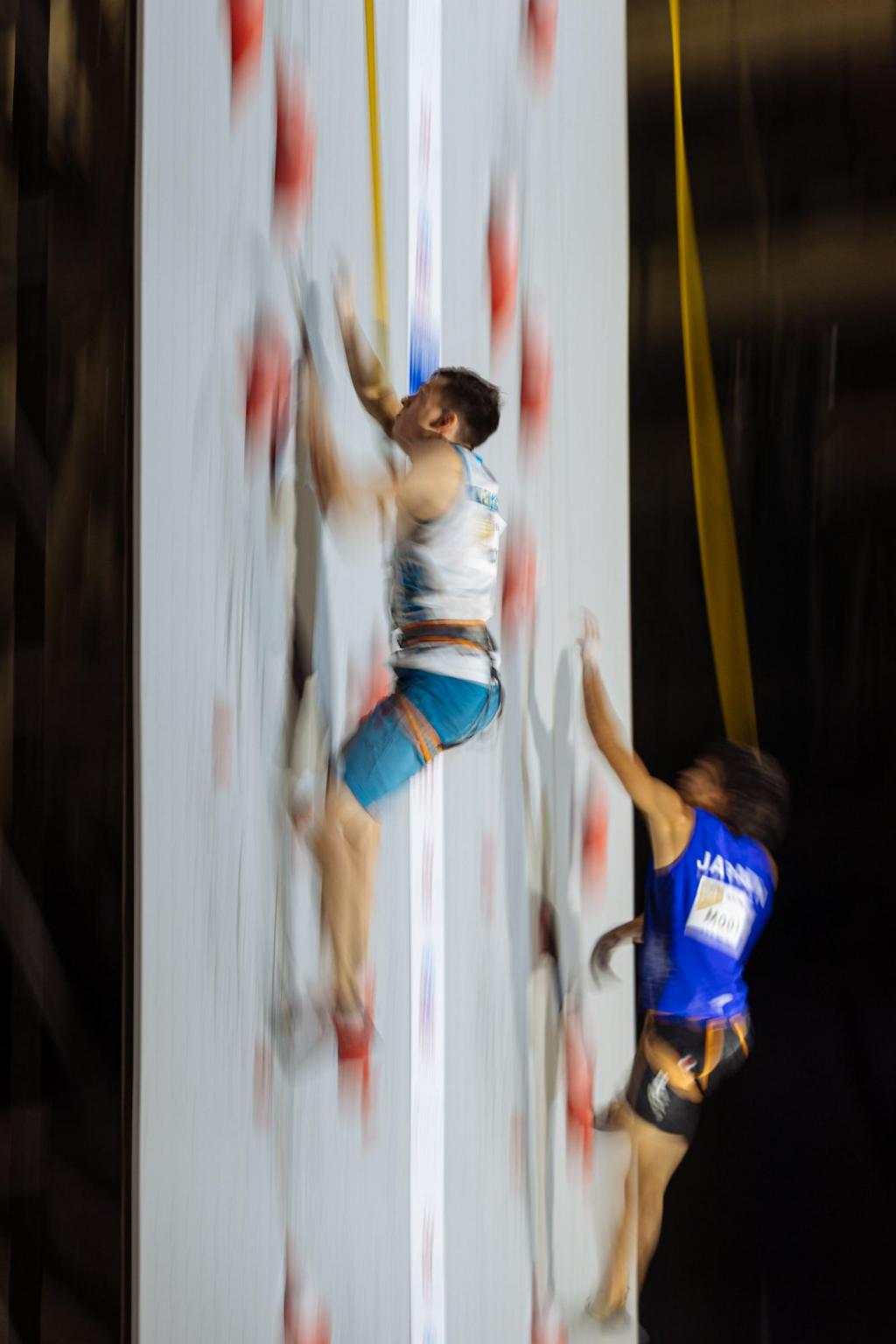
I confess, I'm not enjoying this very much. I enjoy climbing on difficulty the most, but there is the most competition. I have good parameters, I'm explosive, that's why I have good results in speed climbing. The current world record is 5.208 seconds, my personal best is 5.36. The record is currently held by a climber from Indonesia who has a very similar physique to me, so I think I have a great chance.
What are your greatest sporting achievements?
Making it to the Olympics was the biggest achievement of my life. In 2019, I won third place at the World Combined Championships, which allowed me to go to the Olympics. I am the champion of Kazakhstan, I won the speed climbing at the Czech Republic championship.
LECTURES, TRAINING, LUNCH, TRAINING, STUDY
Can you handle study and training?
I've scheduled my studies for two years, so I'll be extending. I'm doing just fine because of it. I have school in the morning, after the lecture I run to the wall, then I have lunch and rest a bit. In the evening I have one more training and sometimes after that I have some exercises at school.
That sounds pretty intense.
I usually have seven training sessions a week. They are often short two-phase workouts, but I don't go to the wall every day. For example, I have three days of training, then I rest and then I train for another three days.
Do you see improvement in yourself?
I'm at a level where I'm moving very slowly, but I'm getting there.
Do you plan to stay in the Czech Republic?
Yes, I'm sure. For me, the Czech Republic is already home. I only miss my family in Kazakhstan. I already feel part of the community here. In the climbing one, everyone already knows me and I think they like me.
(tk)
Student Jan Jilčík collects medals in Brazilian jiu-jitsu and grappling tournaments
Long season of triathlete Tomáš Kříž
We can't just keep increasing battery production without thinking about what happens to them when they run out
Artificial intelligence will help to detect failures of the energy system
We couldn’t have done this anywhere else in the world, says electrical engineer and technical education enthusiast Todd Freeborn